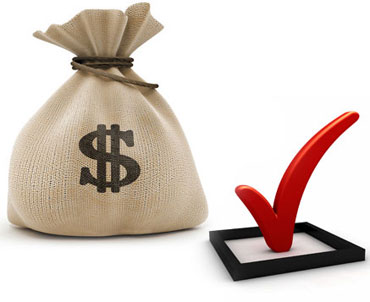When itās time, will you sell your company? How about when itās not your time, but itās the buyerās time to buy a company just like yours? Will you pull the trigger and sign on the bottom line?
Or are you too attached. Too attached to let go at the right time so that you get a return on your investment in your asset?
We talk to advisors every dayā¦ lawyers, accountants, business brokers, financial planners, wealth managers and insurance agents. They all tell us a similar story.
Business owners almost recoil when they hear the words āExitā, āSuccession Planningā, or questions like āWhen are you going to sell?ā
They hate talking about it, as if they are being pushed out of the family home to the nursing home like the doddering grandma.
How come such resistance? This is what I hear from business owners. Check the ones that apply to you:
- āItās my baby, how could I possibly sell it!ā
- āIām not ready to go out to pasture quite yet.ā
- āI donāt want my competitor to get their hands on my books.ā
- āIāve got a lot more I want to do around here. Iām not done yet.ā
- āWhat I want for this business is probably more than anyone is going to give me.ā
- āIāll sell the year I want to exit and it isnāt this year.ā
- āIāve got a business to run today, I donāt want to spend my time on that exit stuff till Iām ready.ā
- āI want my kids to take it over but thatās a few years away.ā
- āShow me a buyer and I might be interested.ā
- āIād be called a sell out, like I couldnāt hack it or something. Thatās not me.ā
- Interesting responses. Lots of emotional reactions. Selling a business is highly personal.
Logic doesnāt often breakthrough the thicket of conundrums that selling brings up. You have to want an outcome on the other side of all that confusion.
That desired end result has to shine bright enough so that you keep your eyes on that prize.
So I was curious how business owners who have actually sold feel having done the dirty deed. Did they feel like a sell out?
Hereās what they have to say:
āI bought this business and built it with my partner so that our family would have a great retirement fund. It took eleven years to build and five years to get it organized so that it was saleable. We always intended to sell because I saw it as an asset. But it was hard for me to let go. I had to get a GM to run things so that I could step away and he had to fire me because I meddled so much. It turned out to be the best decision he could have made for both of us. Heās what made our company saleable.ā
Barry sold a $28 million contracting business. His deal finally closed this year.
Jason clearly saw that if he kept running his business, it might be worth more if he sold it several years from now. But an offer came earlier. And since he set up his company from the beginning to be saleable, he was ready when a buyer was. He was shocked by people around him who were appalled that he sold out. HeĀ blogsĀ about the difference between the āKingā mindset and the āGet Richā mindset that corners business owners into a rock and a hard place when it comes to getting a return on the their investment.
Ben has watched several companies weigh the big decision to sell or stay put. He looks at several lenses to evaluate whether itās time to cash in while you can or stick it out for the bigger reward that might come your way. Then he swings at the emotional challenges andĀ two ideasĀ to help keep your feet on the ground.
Grant was feeling his age and what he didnāt know about making his company saleable almost kept him paralyzed from taking any action. But he forced himself to keep learning and getting the right help. HereāsĀ his storyĀ of how he finally found a buyer after making his company saleable.





